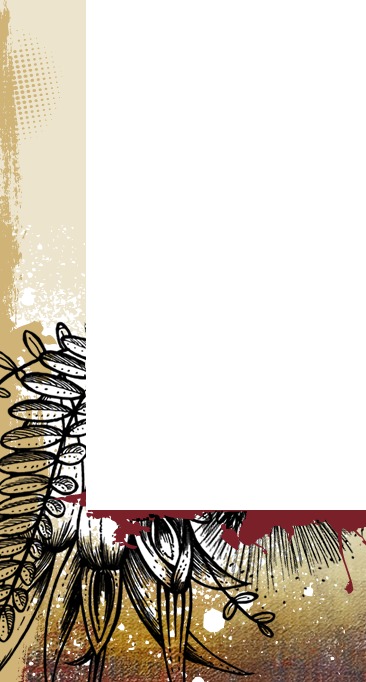Workshops
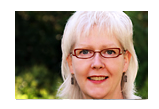
Agile Retrospectives
When: Monday 15 February, 9:00-5.00pm
Where: Civic Suite, Wellington Town Hall, 111 Wakefield Street
With: Esther Derby
Register now! ($650 if attending conference, $795 if not)
"Experience is not what happens to a man; it is what a man does with what
happens to him."
A. Huxley.
The same is true for software teams. Too often, we don't do much - if anything - to squeeze learning out of experience. Agile Retrospectives are a way to take "what happens" during an iteration and use it to build understanding and capability.
In this hands-on workshop, we'll experience a short project, then have a retrospective. After our retrospective we'll examine how the parts and pieces of a retrospective fit together. By the end of the day, participants will have expanded their ability to design effective retrospectives for their own teams.
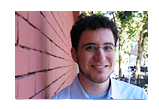
The Lean Startup: a Disciplined Approach to Imagining, Designing, and Building New Products
When: Monday 15 February, 9:00-5.00pm
Where: Civic Suite, Wellington Town Hall, 111 Wakefield Street
With: Eric Ries
Register now! ($650 if attending conference, $795 if not)
This workshop focuses on how to build a startup from the ground up to focus on customers, markets, and speed of iteration. Using examples drawn from his own experiences in the startup hub of Silicon Valley, Eric Ries unravels the myths and misconceptions that guide most startups, and paints a picture of a new way forward for the industry.
Through case studies, exercises, and discussions, Eric Ries will guide entrepreneurs of all stripes through the key areas that determine success for startups: product, engineering, QA, marketing, and business strategy. This workshop presents a new methodology that will allow you to bring new products - and companies - to life. At the end of the workshop, you will have new insight into how to evaluate the strengths and shortcomings of your company, as well as a clear plan of action to bring lean-startup thinking back home. Rather than abstract principles, you'll learn to directly problem-solve.
Who it's for
Although the workshop examines technical topics like continuous deployment and split-testing, it's designed to be comprehensible to hackers and MBAs alike. Students benefit from the content itself as well as interactions with like-minded entrepreneurs.
What will you learn
- How to scorecard the health of your startup.
- How to radically improve cycle time -- from ideas to implementation to assessment -- and focus on the cycle times that matter.
- How to build actionable metrics (and how to ignore vanity metrics).
- Techniques to mitigate the biggest risk for startups: that no customers will buy its products.
- How to identify what customers want to buy before building or making follow-on investments in new features.
- Ship products as fast as multiple times a day while improving quality and lowering costs.
- Build a company-wide culture of decision-making based on real facts, not opinions.
- How to avoid "core incompetencies" that derail most new product initiatives.
- How to find and retain profitable customers.
Equipment for participants
- Imagination
- An open mind
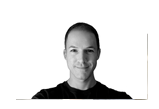
Evolution of Web Security: Fundamentals, Emerging Trends, and Ideas for the Future
When: Monday 15 February, 9:00-12.30pm
Where: Lion Harbour Lounge, Wellington Town Hall, 111 Wakefield Street
With: Chris Shiflett
Register now! ($350 if attending conference, $495 if not)
This is a multi-faceted workshop that explores new concepts in web security. After a solid grounding in well-known exploits like cross-site scripting (XSS) and cross-site request forgeries (CSRF), I'll demonstrate how traditional exploits are being used together and with other technologies like Ajax to launch sophisticated attacks that penetrate firewalls, target users, and spread like worms. I'll then discuss some ideas for the future, such as evaluating trends to identify suspicious activity and understanding human tendencies and behavior to help provide a better, more secure user experience.
Who's it for
This workshop is for people who make web sites. Some of the content is technical and practical, but the focus is on exploring new ideas through discussion with people of various backgrounds and interests.
What will you learn
The major practical thing people will learn is how to protect web sites against traditional exploits, what sort of new exploits are being used against web sites today, and what sort of new ideas can be use to make users feel safer and more confident using our web sites?
What you need
Laptops are useful but not necessary. Some prior involvement and interest in creating web sites is critical.

Visualizing data
When: Monday 15 February, 1:30pm-5.00pm
Where: Lion Harbour Lounge, Wellington Town Hall, 111 Wakefield Street
With: Toby Segaran
Register now! ($350 if attending conference, $495 if not)
It's been said by many that the most in-demand developers over the next few years will be those who know how to help interpret data. As datasets get larger and more complex, it's not enough to simply know statistical techniques to test hypotheses -- you'll also need to be able to spot the things you didn't think of, empower others to do the same, and to reduce a difficult concept to a single image. Visualization makes all of this possible.
This workshop will focus on the latest crop of free visualization tools such as R, processing, canvas, matplotlib, google widgets and many others to show you how to create great visualizations. It will also take you through the steps of getting and cleaning that data, and give you ideas of the best way to display all different kinds of information, be it numeric, geographic, temporal, topographic or networked.
You will leave with the inspiration and the knowledge to create pretty pictures that everyone will tweet about, and in which someone will spot a key fact, heretofore unknown by mankind.
Who it's for
People who have data they want to explore, people who like to think visualization is a form of art, people who love to create something beautiful out of numbers, and people who like attention. It will be mostly targeted at software developers, but others should greatly benefit from learning about all the visualizations that are available.
What you need to bring
Paper, pens.
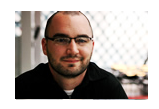
Designing Mobile Experiences
When: Tuesday 16 February, 9:00pm-5.00pm
Where: Civic Suite, Wellington Town Hall, 111 Wakefield Street
With: Brian Fling
Register now! ($650 if attending conference, $795 if not)
In the last year we've learned something that we suspected, but never really knew about mobile, great mobile design sells. But great mobile design doesn't start in Photoshop, it starts by understanding the users, the business goals, the intended devices and a million other tiny variables. Who better to solve these problems than the designer?
In this workshop led by Brian Fling, author of O'Reilly's Mobile Design and Development, we will deconstruct a variety of successful mobile experiences from the old green screens to today's hottest iPhone apps. We'll identify what works in the mobile context and why. But more importantly we'll learn how we can design incredible mobile experiences for today and for tomorrow.
What you'll learn
What we will cover in this workshop:
- Understanding the mobile context and how to design for it
- Creating a device plan and a mobile design strategy around it
- How to design and create progressive mobile experiences
- How to choose the right mobile platform and application context
- How to get the right designs on the right devices
- How to design and build something insanely great
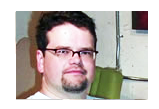
ASP.NET MVC -- it's TNT!
When: Tuesday 16 February, 9:00-12.30pm
Where: Lion Harbour Lounge, Wellington Town Hall, 111 Wakefield Street
With: Jeff Atwood
Register now! ($350 if attending conference, $495 if not)
Myself and one other developer built Stack Overflow up from scratch to what ultimately became one of the top 1000 sites on the internet. And we did it all using ASP.NET MVC, starting with a beta version to 1.0 and beyond. ASP.NET MVC isn't just extremely fast and pleasingly simple, it brings the *fun* back to web programming in the Microsoft stack!
In this workshop:
- You'll get an introduction to and overview of ASP.NET MVC
- I'll share key real world lessons learned in building Stack Overflow and operating a live top 1,000 internet website all running on ASP.NET MVC
- I'll build a demo site up illustrating the things I'm talking about
This workshop is primarily intended for developers who are new or just beginning with ASP.NET MVC, but will have content applicable to intermediate skill levels as well.
Bring your laptop along and load it with a copy of the free Visual Studio 2008 Web Developer edition if you'd like to follow along with the demos and examples. This is not required, of course.
At the end of this session, you'll know enough about ASP.NET MVC to be dangerous - to build and deploy a functional site.
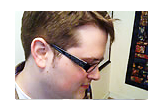
Introduction to jQuery and jQuery UI
When: Tuesday 16 February, 1:30pm-5:00pm
Where: Lion Harbour Lounge, Wellington Town Hall, 111 Wakefield Street
With: John Resig
Register now! ($350 if attending conference, $495 if not)
A half-day tutorial, introducing you to the concepts behind jQuery, the popular JavaScript framework. Learn how to create unobtrusive pages using the power of jQuery and jQuery UI.
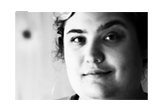
Performance Bootcamp
When: Wednesday 17 February, 9:00-5.00pm
Where: Civic Suite, Wellington Town Hall, 111 Wakefield Street
With: Amy Hoy & Thomas Fuchs
Register now! ($650 if attending conference, $795 if not)
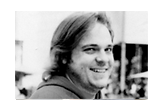
Slow web apps suck. They suck... customers. Tests by Amazon and Google (not to mention Jakob Nielsen) have shown that mere millisecond delays can cause a drop in traffic and revenue.
Chances are, your rich web site or web app is in need of a speed boost. This workshop will take you through the process, from beginning to end -- learning how to use the tools, how to spot and nail down problems, how to fix all the issues you'll come across during the phases of the browser cycle.
You'll learn everything you need to know to optimize both the loadtime (transferring and incorporation of your app's assets), and runtime (when the browser is rendering and code is executing). You'll learn which techniques you should always use, and which you should use only in extreme circumstances. And you'll learn a lot more than you ever believed about JavaScript performance itself.
Bring your questions, and we'll bring our answers.
Bonus: a free copy of our book, JavaScript Performance Rocks! and our custom profiling tool for every attendee. So you can refer back to it later.
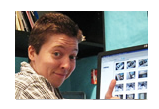
Does Community Scale? A Therapy Session for Community Managers
When: Wednesday 17 February, 9:00-12.30pm
Where: Civic Suite, Wellington Town Hall, 111 Wakefield Street
With: Shelley Bernstein & Sebastian Chan
Register now! ($350 if attending conference, $495 if not)

An opportunity to vent and brainstorm about dealing with people, trolls and wikipedians on the web. We'll talk about what it really takes to invest in community online and run a successful project - and how this requires a consistency and integration between behaviours online and offline. In a closed-door session, we'll look at various community driven sites on the web to see how they work and when they fail. Most importantly, we'll explore lack of scale with communities and what can or cannot be done about it. We will also talk about managing the expectations of traditional marketing practices and discuss how working with communities can sometimes run counter to the 'natural instincts' of marketers.
Who it's for
People who are just getting started working with communities online or people with experience they'd like to contribute to the discussion. People who love communities or are frustrated by them. Folks in the non-profit sector especially. Everyone attending the session should be prepared to talk about disasters and successes of their own experience.
What will you learn
Examples of best practice and a framework for understanding and improving community projects online.
What you need to bring
Examples! Everyone needs to bring at least 2 examples of communities on the web - 1 win, 1 fail. These can be single-instance exchanges or larger full-site examples. Also bring any examples of real-world problems to solve or discuss.
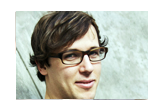
Creating Simple: Techniques for simplifying your UI and your CSS/HTML
When: Wednesday 17 February, 9:00-12.30pm
Where: Civic Suite, Wellington Town Hall, 111 Wakefield Street
With: Daniel Burka
Sold out! Please let us know if you'd like to be placed on a waiting list.
We all know the maxims about simplicity like "Simplicity is the ultimate sophistication" or "Everything should be made as simple as possible, but not simpler" yet making your interface simple often remains illusive. This workshop will examine and explain techniques that make complex interactions feel simpler and how to make your web applications more intuitive at the same time. We'll also go under the hood and discuss how you can make your CSS and HTML cleaner too. I'll pull examples from projects such as Digg and Pownce as well as dissecting how other designers have created elegant solutions to difficult problems.
Who it's for
This workshop is for interface designers, product managers, and front-end engineers. While we'll focus most frequently on interface design issues, most of the ideas will transcend specific examples and will contribute to an understanding of product design in a more general way.
What will you learn
Tips and tricks for designing simpler interfaces. Good practices for developing efficient html and css.
What will you need
Bring pencil and paper.
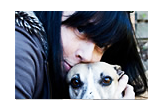
Inclusive Design: Accessible User Experiences on the Web
When: Wednesday 17 February, 1:30pm-5:00pm
Where: Lion Harbour lounge, Wellington Town Hall, 111 Wakefield Street
With: Lisa Herrod
Sold out! Please let us know if you'd like to be placed on a waiting list.
Performing Accessibility by Checklist is a bit like trying to create a masterpiece with a paint-by-numbers kit. You might get a reasonable idea of how things look, but in the end it's just not quite right.
What you will learn
In this workshop you will learn a new, contemporary approach to accessibility that centres on Inclusive Design practices. By first adopting fundamental user experience methodologies we will look at a variety of ways of addressing W3C accessibility guidelines in a user centred manner.
Who's it for
This is an interactive, hands-on workshop designed for people from each and every role on a web team, from visual designer to frontend dev or producer and especially user experience practitioners who are ready to take a truly inclusive approach to accessible user experience design.
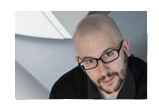
Systems/Layers: Understanding urban space in an era of networked informatics
When: Wednesday 17 February, 1:30pm-3:00pm
Where: Around the streets of Wellington
With: Adam Greenfield
Register now! ($225 if attending conference, $350 if not)
Not so much a hands-on as a feet-on workshop, you will be taken on an hour-long walk to examine the city through the lens of digital interventions and infrastructures.
Visions of networked urbanism tend to live in what Paul Dourish and Genevieve Bell call a "proximate future," that just-over-the-horizon window of time that never actually seems to arrive. But how do networked services inform our choices and experiences in the real city that we actually inhabit at this moment? We're going to take a walk around a Wellington site and look for the appearances, manifestations and points of application where the affordances and constraints of networked informatics are already relevant to urban life.
Who it's for:
Anyone interested in better understanding the interplay between urban flows, experiences, structures and infrastructures and the networked interventions that increasingly shape them.
What you can expect to get out of it:
If nothing else, an hour's walk around the city with eyes open.
What you need:
A good pair of shoes, a digital camera, a notebook, and a willingness to poke around urban space. Parkour skills not required, but would be a smashing plus.

Entrepreneurial Design
When: Saturday 20 February, 9:00pm-5.00pm
Where: Civic Suite, Wellington Town Hall, 111 Wakefield Street
With: Bek Hodgson
Register now! ($650 if attending conference, $795 if not)
Bring your ideas, big and small, and dive into a one-day intensive workshop that will help you brand, design and plan for the development of your own personal web project or business startup.
Who's it for?
Anyone who wants to take a great idea to the next step. Whether you are a designer, a developer or just an interested and active participant - this workshop will give you hands-on experience with the start to finish process of branding, designing and developing a successful web startup.
What you'll learn
Brand it with Love
9:00 - 10:30
Start your day with a cup of joe and a collaborative branding session set to identify the key elements that will inform the voice and visual expression of your new idea.
Make your Mark
11:00 - 12:30
Now equipped with the tools needed to inform visual expression, we will explore the nuances of logotype design and mark making. Learn why bigger isn't always better, short can indeed be sweet, and gestalt is paramount.
Design for Impact
1:30 - 3:00
Whether you are designing a boutique site for a select audience or a community site for the masses, learn how to apply fundamental design and development principles to your process. Discover how the use of grid systems provides a flexible framework for your site to grow and change. Explore the fundamentals of composition, hierarchy, use of color, type and image as vehicles to engage.
Feed on feedback
3:30 - 5:00
With the advent of the web, we don't have to wait for our designs to hit the shelf to solicit feedback - it's available anytime we want it. Explore the benefits of user testing, rapid prototyping, collaborative development and iteration, and learn why embedding these practices early on allows for greater successes as your site continues to develop.
What you need to bring
Not a thing. Materials for the session will be provided, but if you have a favorite sketch pad, grid paper or writing device, bring it along. While not necessary, computers are welcome and could come in handy as you explore principles covered in 'Design for Impact'.

